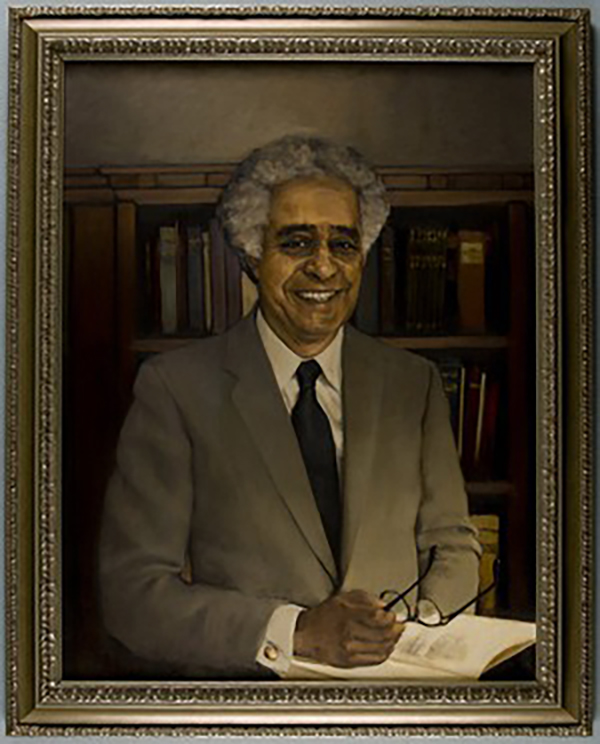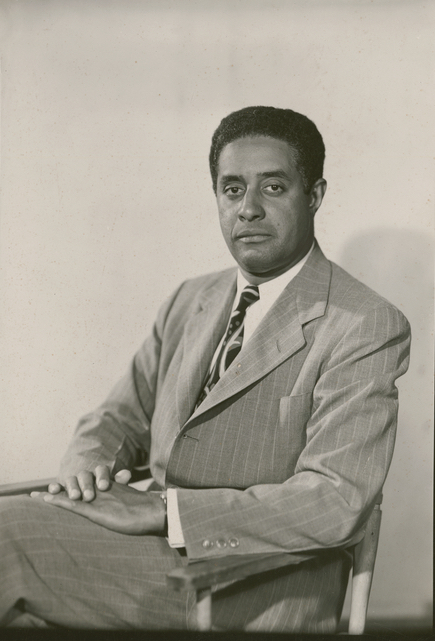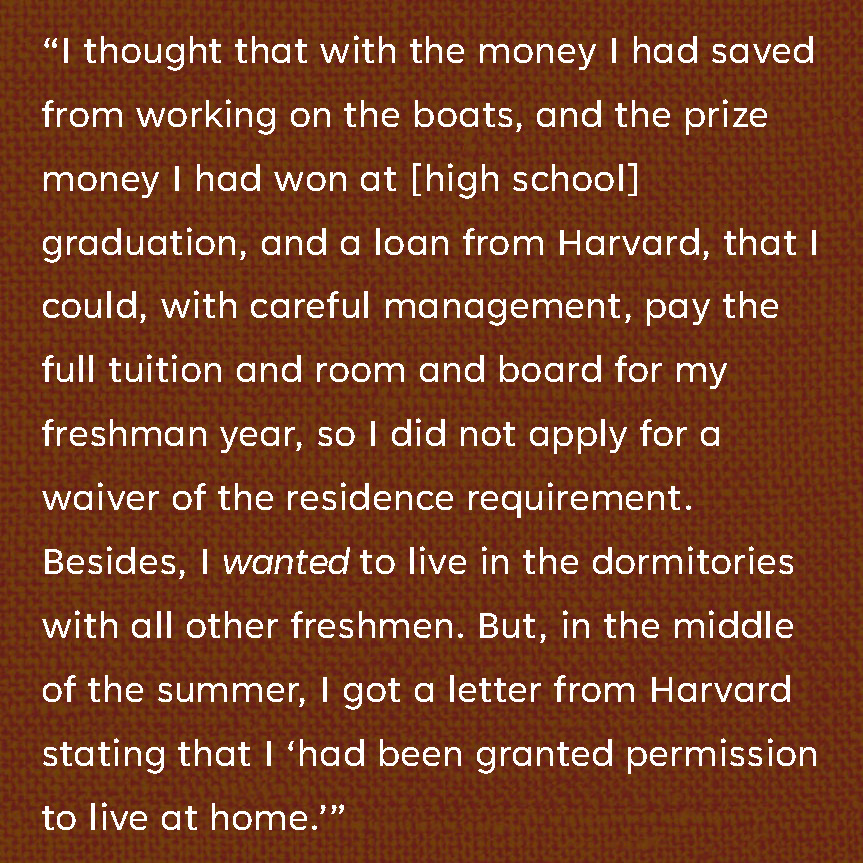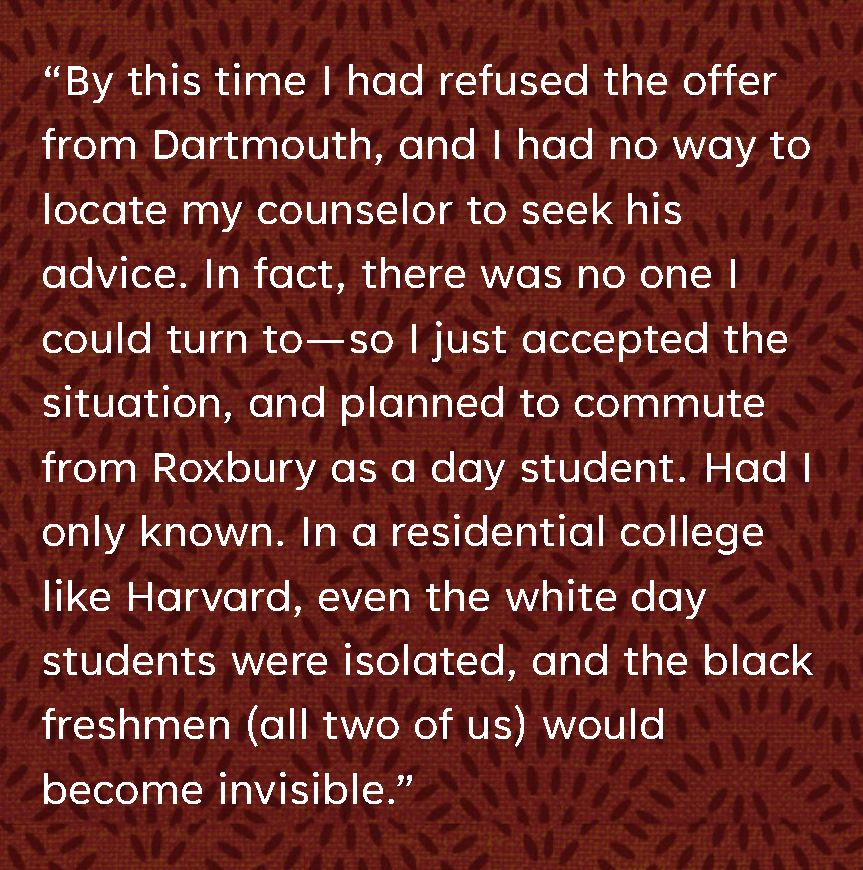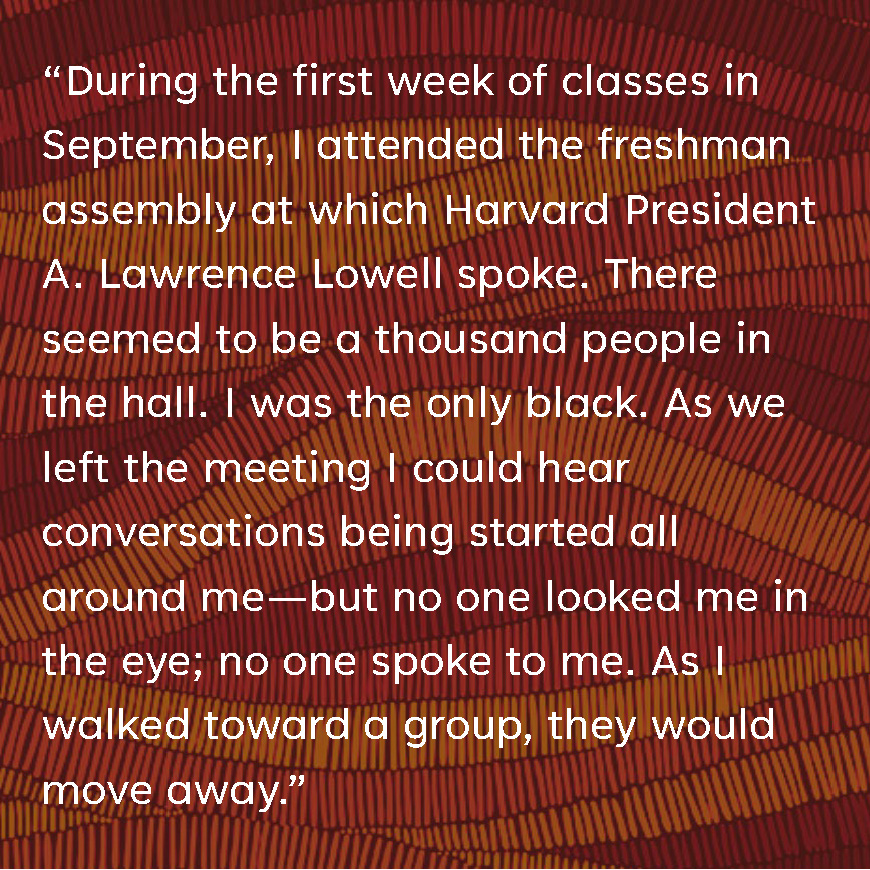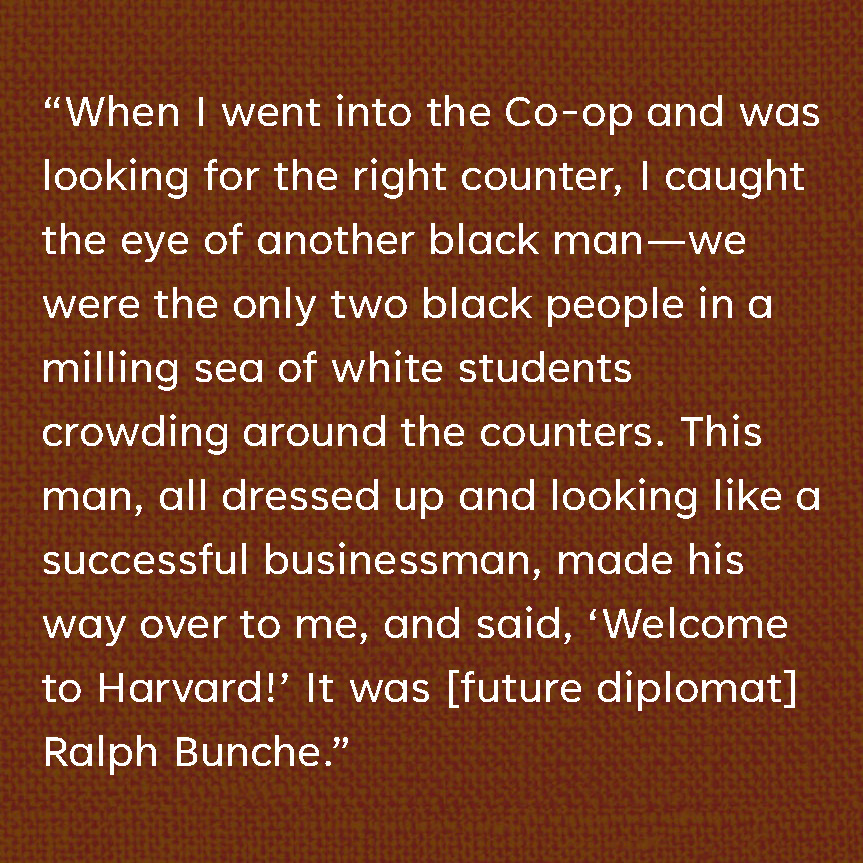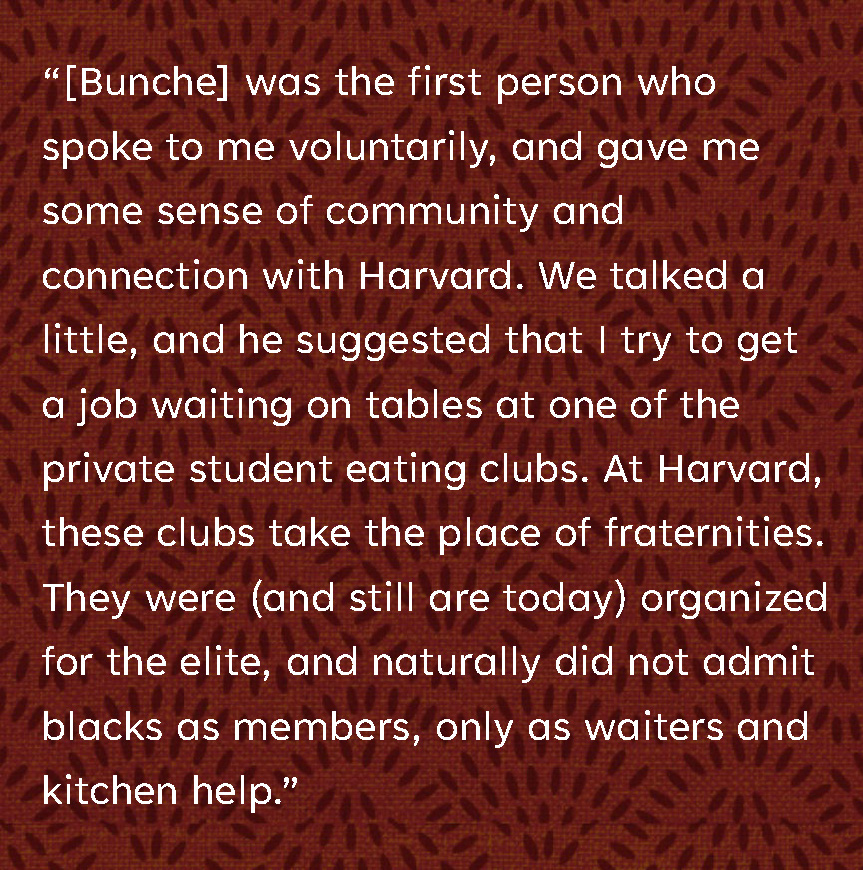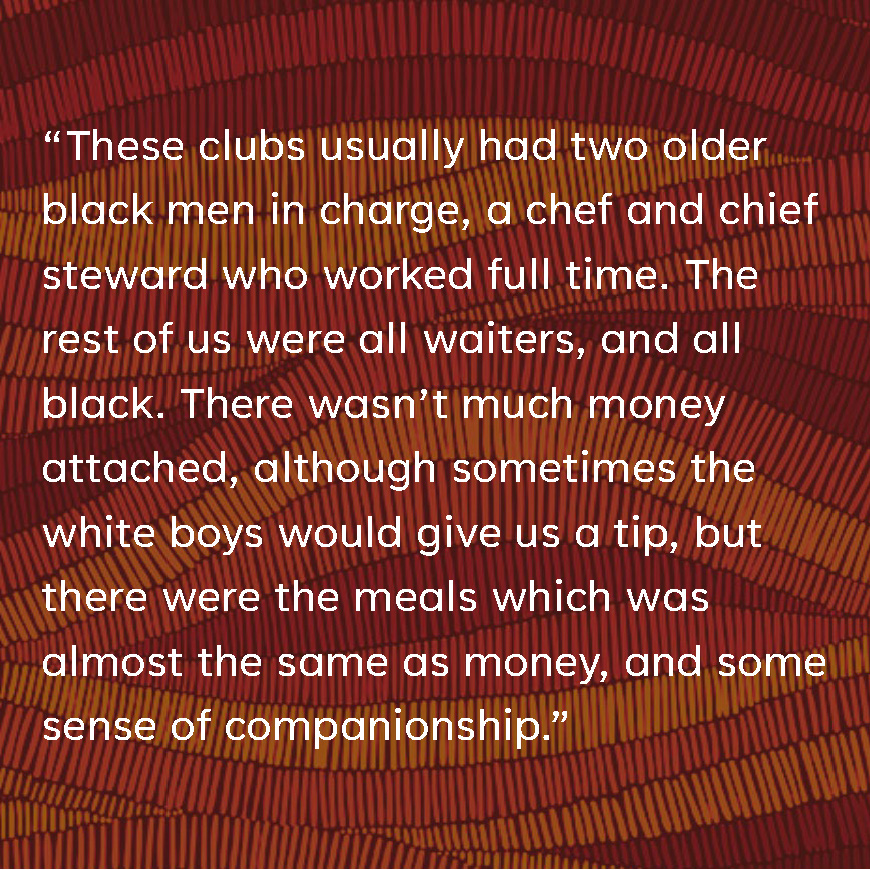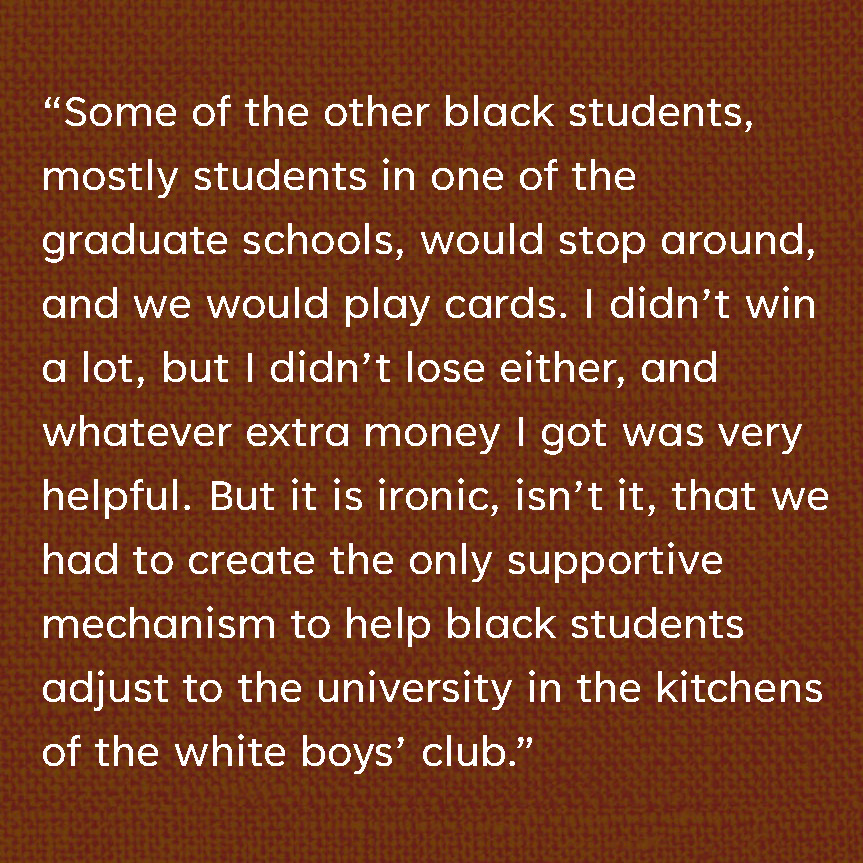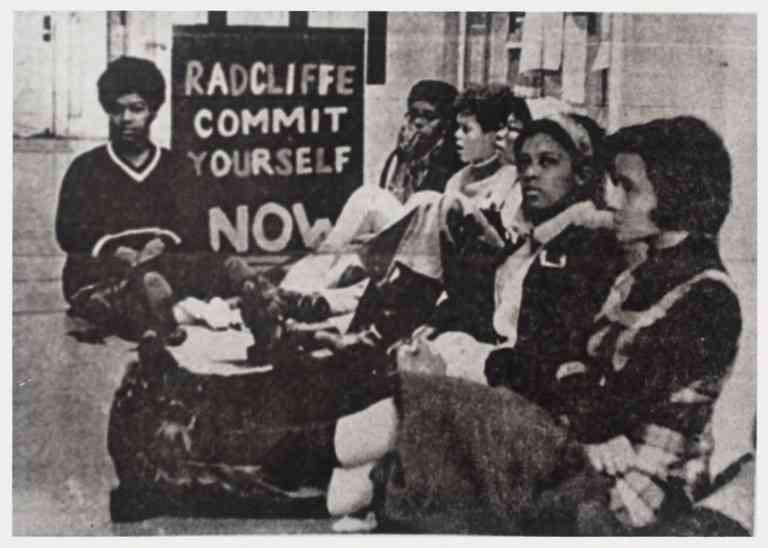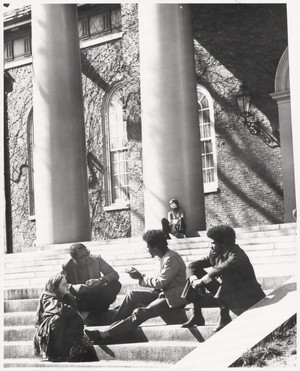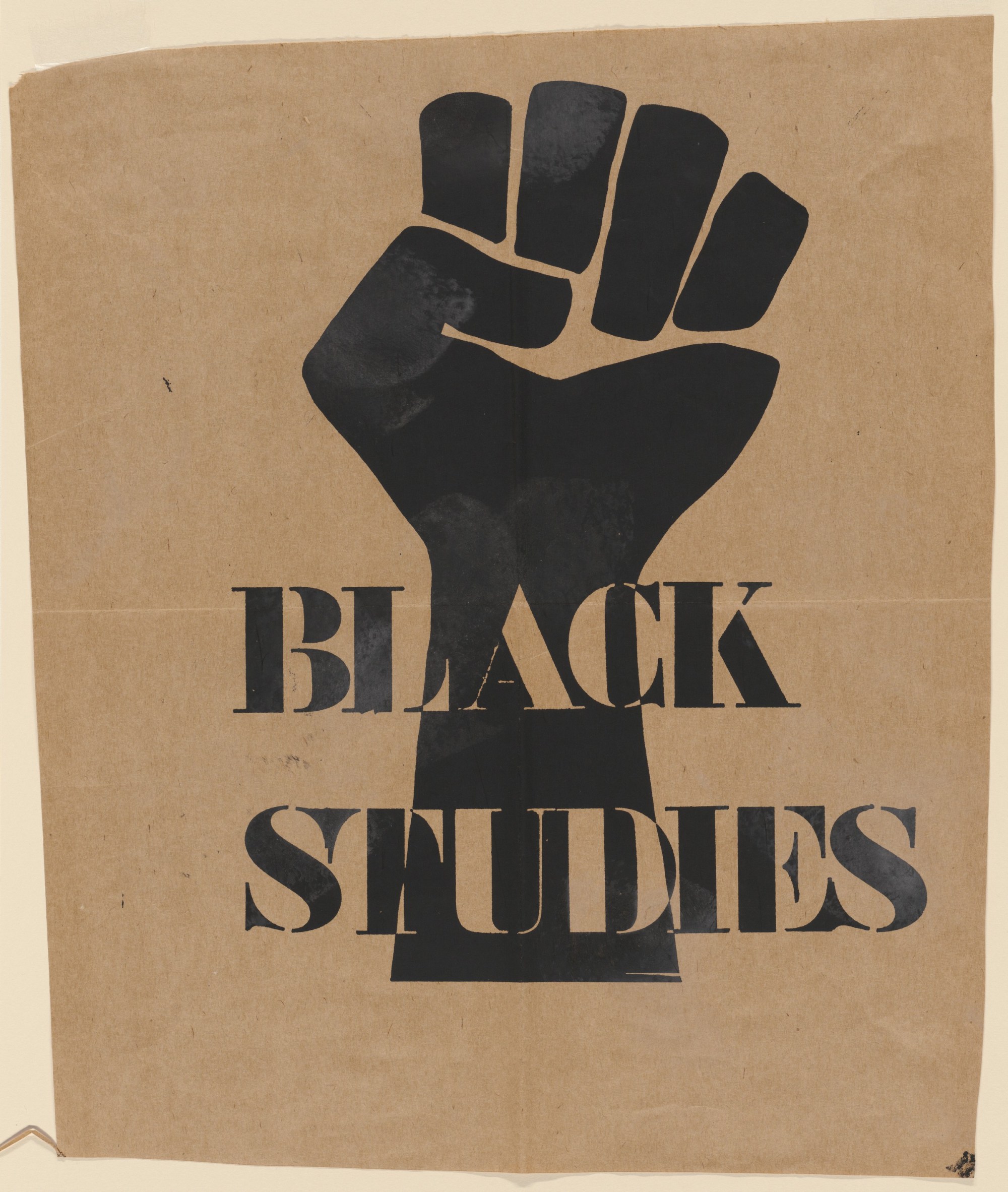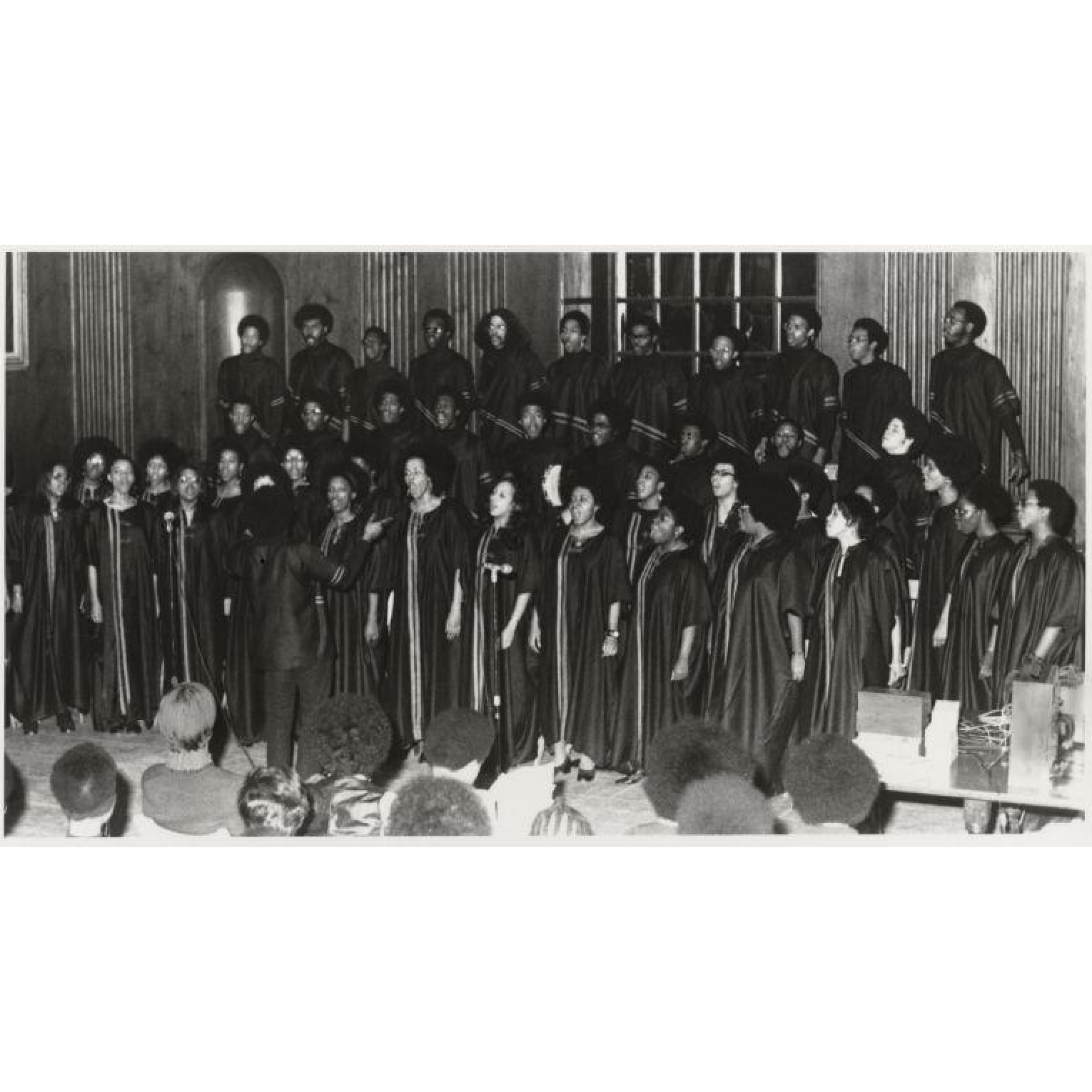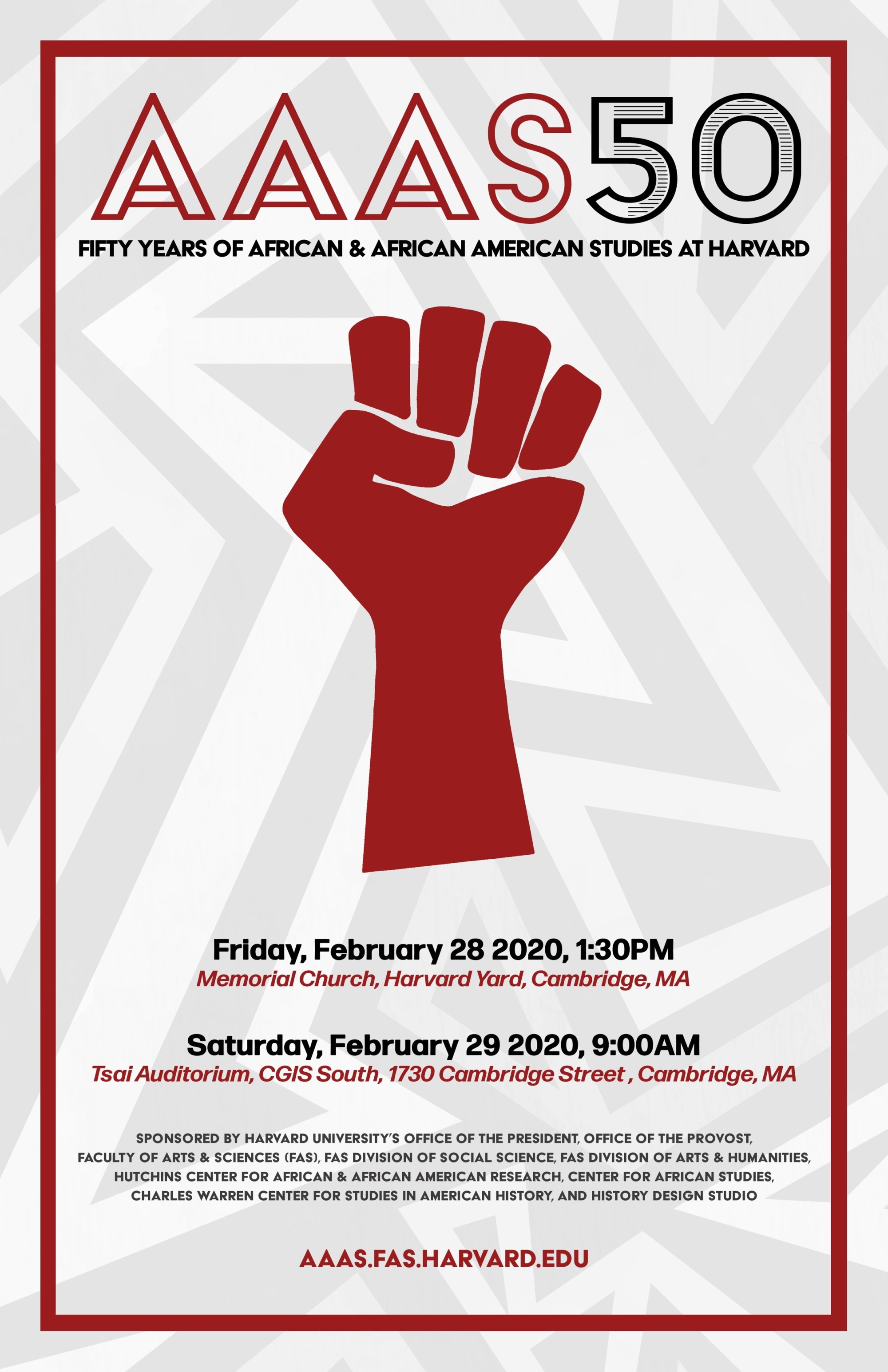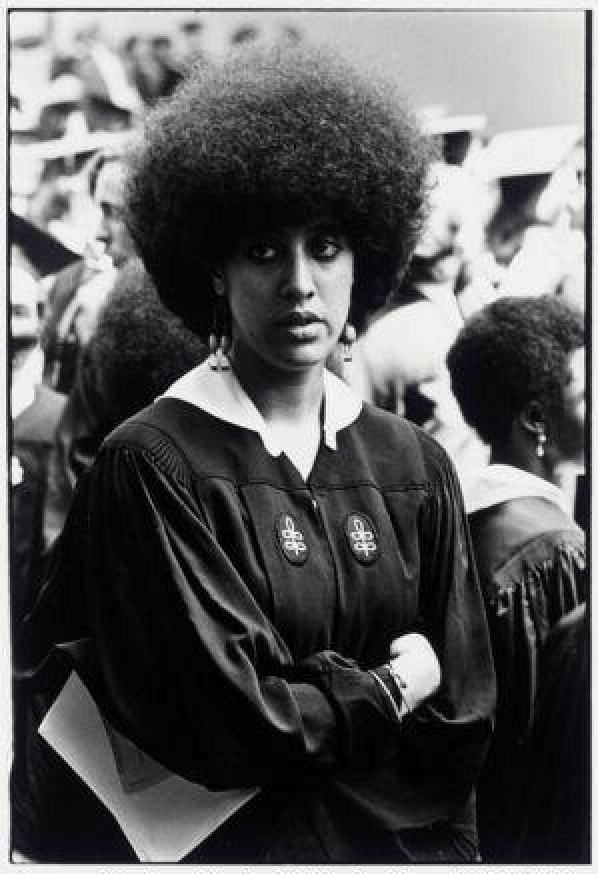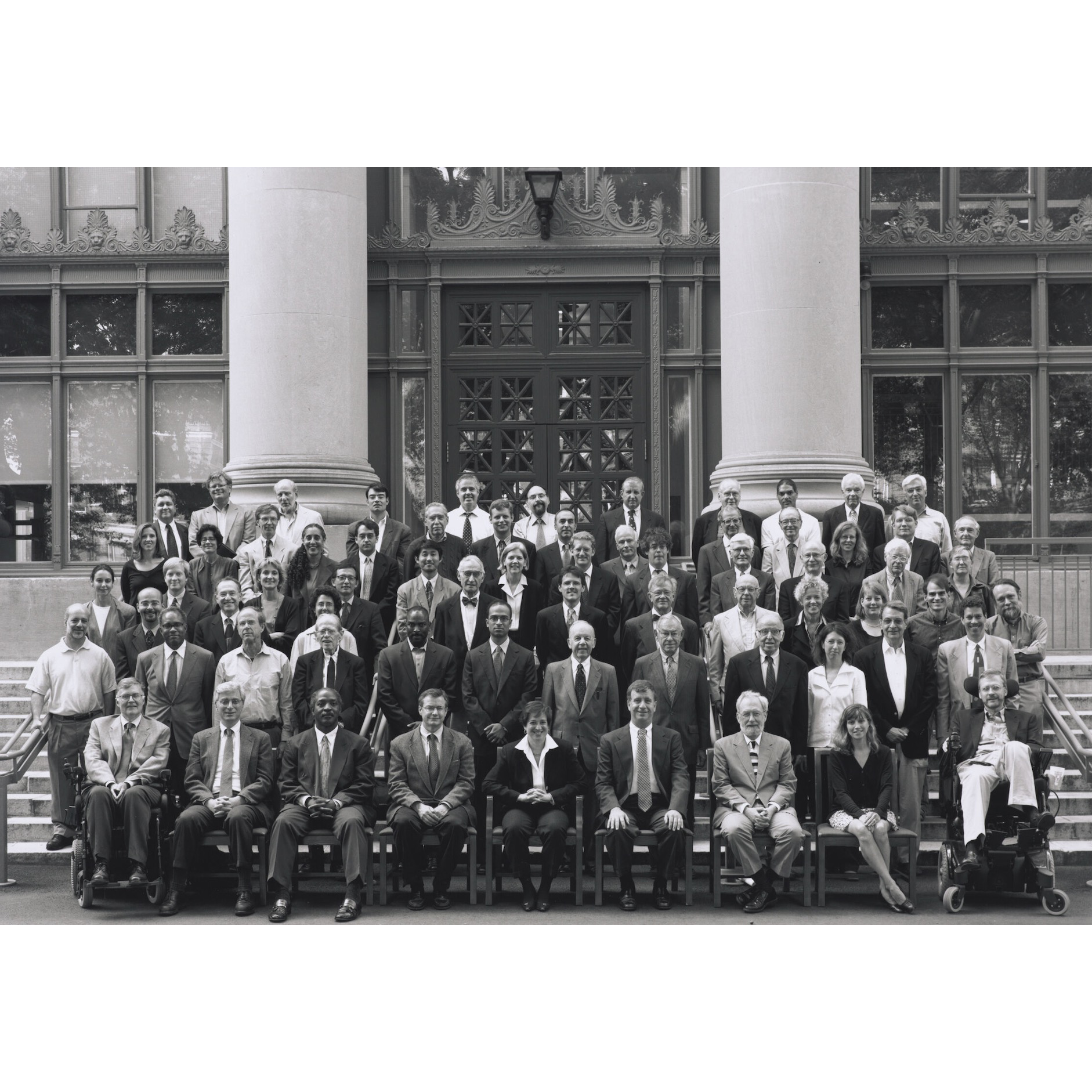Ewart Guinier
Class of 1933
Ewart Guinier
Ewart G. Guinier was the founding chair of Harvard’s first Department of Afro-American Studies in 1969 — a bittersweet return to Harvard decades after he faced a dispiriting student experience from 1929 to 1931. Guinier devoted his Harvard career to helping people fight and triumph over obstacles of racial and cultural exclusion.
School: Harvard College
A Challenging Experience
Born in Panama to Jamaican parents in 1910, Ewart Guinier’s early education took place in Jamaica. He immigrated to the United States at age 15 and attended Boston English High School, where he served as editor of the school’s newspaper, he won multiple prizes for his scholarly achievements, including excellence in English. He graduated with honors in 1929 so determined to attend Harvard College, which did not offer him financial aid or housing, that he turned down Dartmouth College’s offer of a full scholarship with room and board.
Guinier did not include a photograph of himself when he submitted his application to the University — a requirement at the time — which he believed was the reason he was not offered a scholarship. He self-funded his years at Harvard with money he had saved working in high school as a lineman on boats traveling between Boston and New York. Unable to afford housing on campus, Guinier lived at home and commuted several miles to campus from Boston and Brookline during his freshman and sophomore years, respectively.
From his first day on campus, Guinier experienced anything but the warm welcome he had received at English High School. He was the only Black student in his freshman class, and all his classmates, including former English High schoolmates, ignored him. As he later recounted to family members,
[…] no one looked me in the eye, no one spoke to me. As I walked toward a group, they would move away.
Professors rarely called on him in classes. He was, he recalled, “invisible to everyone around me” and treated as a “non-person.”
He did not feel a true sense of belonging until he was welcomed to Harvard during an encounter with future Nobel Peace Prize winner Ralph Bunche (M.A. 1928, Ph.D. 1934). Bunche, who was also Black, advised him to seek employment in one of the private student eating clubs, where he could meet other Black students. Guinier later mused that it was ironic “that we had to create the only supportive mechanism to help black students adjust to the university in the kitchens of the white boys’ club.” He also was able to form bonds with other Black students when he joined the Boston-area chapters of the Black fraternities Alpha Phi Alpha and Omega Psi Phi.
Guinier’s daughter Lani later reflected, “These early experiences affected my father’s entire life, and […] my life as well. They became the stock story of my youth: Try hard, aim high, but don’t be surprised if the bogey of racism gets there first.”
In His Own Words
In 1931, financial difficulties forced Guinier to leave Harvard and transfer to City College in New York, where he took night classes while working as a freight elevator operator at The New York Times. Guinier graduated cum laude in 1935 and earned a master’s degree from Columbia University’s Teachers’ College in 1939.
From 1938 to 1962, Guinier was an active labor leader, community organizer, and civil rights activist in New York City. While working at the Men’s Service Rating Bureau within the Department of Welfare, he and other Black employees who had been hired on a temporary basis organized to form a local chapter of the State, County and Municipal Employees of America. This enabled them to take the civil service exam to obtain full-time employee status. Guinier ultimately became the first chairman of the Rating Bureau local and later chaired the State, County and Municipal Workers Union.
Guinier’s influence extended well beyond local unions. He was elected international secretary-treasurer at the second United Public Workers convention in 1948, and in 1949, became the first Black person to receive a party’s nomination for the Manhattan Borough presidency. And in 1951 he was one of the founding members of the National Negro Labor Council.
In the midst of these activities, Guinier found time to return to school, earning an LL.M. degree from New York University’s School of Law in 1959. He passed the New York State Bar exam that year, but the organization’s character committee denied him admission. Unable to practice law, he went on to serve as the executive director of the Brownsville Community Council in Brooklyn, where he transformed the organization into an antipoverty agency. In 1968, he joined Columbia University as associate director of the new Urban Center, founded that year to improve the relationship between the university and the surrounding Harlem community.
Making a Place for Black Culture at Harvard
In 1969, after years of student activism, Harvard founded what was then called the Afro-American Studies Department, and invited Guinier to serve as the inaugural chair. His tenure — a period of both triumph and tumult — lasted until he stepped down from the position in 1976.
Guinier quickly earned the respect of students and several colleagues but clashed with the University’s administration over various issues, from whether Afro-American Studies faculty should hold joint appointments with more traditional departments to whether Afro-American Studies should be part of a joint concentration, rather than recognized as an independent field of study. Guinier opposed these measures, believing they would diminish the legitimacy of the new department. His disagreements with the administration ultimately led to the withdrawal of financial, research, and other resources from the department. Guinier, who remained the department’s sole tenured professor until his retirement in 1980, was also excluded from key committees and decisions impacting Afro-American Studies at Harvard.
Harvard Legacy
Ewart Guinier died in 1990 at age 79. He was posthumously awarded the W.E.B. Du Bois Medal, Harvard’s highest honor in the field of African and African American studies, in 2000. His daughter, Lani Guinier (Radcliffe A.B. 1971), made history when she became the first Black woman to hold a tenured professorship at Harvard Law School. Grandson Nikolas Bowie (A.M. 2011, J.D. 2014, Ph.D. 2018), is now the Louis D. Brandeis Professor of Law at Harvard Law School.
Selected Sources
“Biographical/Historical Information.” Ewart Guinier Papers, 1910-1989. New York Public Library Archives and Manuscripts. Accessed September 5, 2023.
“Ewart G. Guinier.” The Report of the Presidential Committee on Harvard & the Legacy of Slavery. Harvard Radcliffe Institute. Accessed July 15, 2023.
Guinier, Lani. “My Father’s Undergraduate Years at Harvard College.” The Journal of Blacks in Higher Education 21 (Autumn 1998): 104–105.
More profiles
Charles Hamilton Houston
Known as “The Man Who Killed Jim Crow,” Charles Hamilton Houston was the first Black person to both serve on the Harvard Law Review and earn a Doctor of Juridical Science (S.J.D.) from Harvard Law…
Carter G. Woodson
Carter G. Woodson, known as “The Father of Black History,” was the second African American to earn a Ph.D. from Harvard University. He created Negro History Week — the forerunner to Black History Month —…
W.E.B. Du Bois
W.E.B. Du Bois, the first Black person to earn a Ph.D. from Harvard, used his talent and intellect to pave a path toward racial uplift.

